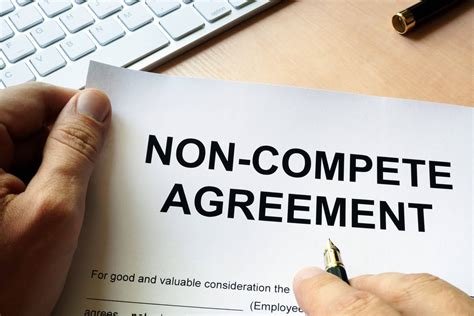How to Afford a Non-Compete Lawsuit: Navigating Legal Costs and Strategies
Non-compete agreements are increasingly common, especially in industries with valuable trade secrets or specialized expertise. However, disputes over these agreements can quickly escalate into costly lawsuits. Facing a non-compete lawsuit, or considering challenging one, can be daunting, especially when considering the financial implications. This article explores practical strategies for managing the financial burden of a non-compete lawsuit.
What are the typical costs of a non-compete lawsuit?
The costs associated with a non-compete lawsuit can be substantial and vary depending on several factors:
- Legal Representation: This is often the largest expense. Hourly rates for experienced employment lawyers specializing in non-compete agreements can range significantly based on location and the lawyer's reputation. Expect to pay several hundred dollars per hour, and the total cost will depend on the complexity of the case and the number of hours required.
- Filing Fees: Court filing fees vary by jurisdiction but can add up, especially if the case involves multiple filings or appeals.
- Expert Witnesses: If your case requires expert testimony (e.g., regarding industry practices or damages), you'll need to pay for their services, which can be costly.
- Discovery: This phase involves exchanging information with the opposing party. Costs can include document review, depositions, and other investigative expenses.
- Trial Costs: If the case proceeds to trial, costs can dramatically increase, encompassing witness fees, court reporter fees, and other expenses.
How can I afford a non-compete lawsuit?
Affording a non-compete lawsuit requires careful planning and resourcefulness. Here are some strategies:
1. Explore Legal Financing Options:
- Legal Financing Companies: These companies provide funding for lawsuits in exchange for a percentage of any settlement or judgment. The terms and conditions vary significantly, so careful comparison is crucial. Understand the potential costs and repayment terms before committing.
- Law Firm Payment Plans: Some law firms offer payment plans or flexible fee arrangements to clients facing financial constraints. Discuss payment options openly and honestly with your attorney during your initial consultation.
2. Evaluate Your Insurance Coverage:
- Professional Liability Insurance (Errors and Omissions Insurance): Some policies may cover legal expenses related to disputes arising from professional conduct, potentially including non-compete litigation. Review your policy carefully to determine the extent of coverage.
- Other Relevant Insurance: Check other insurance policies (e.g., business insurance) to see if any provisions might cover legal costs related to non-compete disputes.
3. Consider Negotiating a Settlement:
- Early Settlement: Negotiating an early settlement can often be more cost-effective than pursuing a full-blown trial. This requires careful evaluation of your case's strengths and weaknesses.
- Mediation or Arbitration: These alternative dispute resolution methods can be significantly less expensive than litigation. They allow both parties to participate in a structured negotiation process with the assistance of a neutral third party.
What are common misconceptions about non-compete lawsuits?
Are Non-Compete Agreements Always Enforceable?
No. The enforceability of a non-compete agreement depends on several factors, including its reasonableness, the specific terms, and the jurisdiction where the agreement was formed. A poorly drafted or overly restrictive agreement is less likely to be upheld by a court.
Can I Represent Myself in Court?
While you can represent yourself (pro se), it's strongly advised against in complex legal matters like non-compete disputes. Navigating legal procedures, evidence rules, and court protocol without legal training can significantly harm your case and lead to unfavorable outcomes.
Will I Always Win?
The outcome of a non-compete lawsuit is highly unpredictable and depends on many factors, including the strength of your case, the evidence presented, and the judge's interpretation of the law. It's crucial to have a realistic assessment of your chances of success before investing significant resources.
Conclusion
Facing a non-compete lawsuit presents significant financial challenges. However, by exploring available financing options, understanding your insurance coverage, and considering settlement negotiations, you can better manage the associated costs and increase your chances of a favorable outcome. Remember to consult with an experienced employment lawyer early in the process to assess your situation and develop a cost-effective strategy. They can provide tailored advice based on your specific circumstances and jurisdiction. The information provided here is for informational purposes only and does not constitute legal advice. Always seek professional legal counsel for your particular situation.

